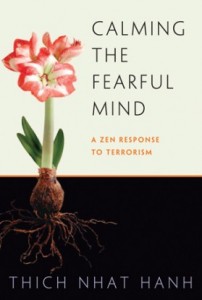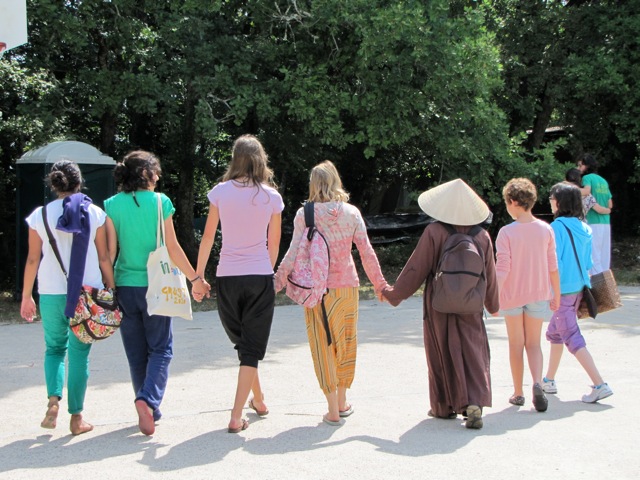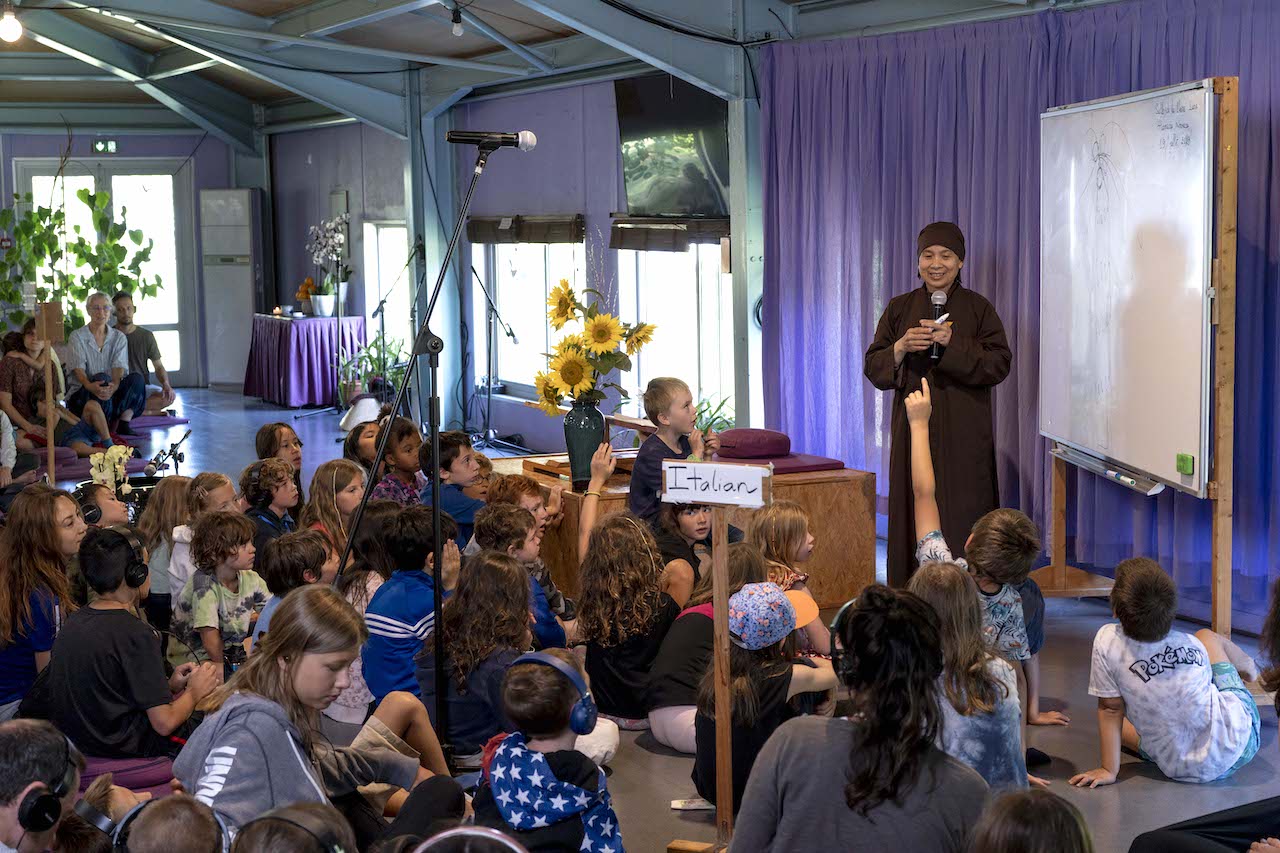“Man is not the enemy”, Thay has often reminded us.
“Our enemy is hatred, anger, ignorance and fear.” The roots of terrorism are not to be found in religious philosophies or unfamiliar cultures, but in misunderstanding, fear, anger, and hatred.
“Terrorists are human beings who are sick with the virus of terrorism. The virus you see is made of fear, hatred, and violence. You can be a doctor for a person with this illness.”
From Thay’s book Calming The Fearful Mind:
“Some people commit acts of terrorism in the name of their values and beliefs. They may hold the idea that others are evil because they don’t share these values. They feel justified in destroying their enemies in the name of God. People who engage in this violence may die with the conviction that they are dying for a righteous cause. And isn’t our country acting out of the same conviction when we kill those we define as threats? Each side believes that it alone embodies goodness, while the other side embodies evil.
“Fear is another root of violence and terrorism. We terrorize others so that they will have no chance to terrorize us. We want to kill before we are killed. Instead of bringing us peace and safety, this escalates violence. lf we kill someone we call a terrorist, his son may become a terrorist. Throughout history, the more we kill, the more terrorists we create.
“Across the globe, people suffer from very much the same things: social injustice, discrimination, fear, and fanaticism. Fundamentalism is very much alive in countries around the world. Many people believe that they alone are on the side of God, and they behave as if they are the only children of God and the lives of others are not as precious. They want God to bless their own country above all, and not to bless others who they feel represent evil. But to think that everything the other group does is evil and everything we do is good, prevents us from understanding the values of others, and from recognizing their suffering and fear. Instead of making us stronger, our unwillingness to listen keeps us vulnerable and afraid.
“God does not take sides. Jesus, Buddha, Allah—all the great beings speak of compassion and inclusiveness. We should not believe that we can be peaceful by eliminating the other side.
“A doctor wants to destroy the malaria in a sick person, not destroy the patient himself. Terrorists are human beings who are sick with the virus of terrorism. The virus you see is made of fear, hatred, and violence. You can be a doctor for a person with this illness. Your medicine is the practice of restoring communication.
“But if a doctor cannot talk to a patient, if the patient refuses to cooperate, then how can the doctor help? If the patient refuses the doctor’s help, doesn’t trust her, and fears the doctor maybe trying to kill him, he will never cooperate. Even if the doctor is motivated by a great desire to help, she cannot do anything if the patient will not collaborate. So the first thing the doctor has to do is find ways to open communication. If you can talk to the patient, then there is hope. If the doctor can begin by acknowledging the patient’s suffering, then mutual understanding can develop and collaboration can begin.
“To resolve our current dilemma with terrorism we must be like this doctor. After our leaders have inspired confidence in Americans and proved that, as a country, we have the capacity to listen and understand, we can then turn to those who are considered to be terrorists. Our leaders can address them with loving speech,
“We know that you must have suffered and hated us very deeply to have attacked us. You must have thought that we want to destroy you as members of a religion, as a race, as a people. You must have believed that we embody evil, that we don’t recognize your religion and your spiritual values. We are sorry that you suffer so much. We want to tell you that it is not our intention to destroy you as a people, as a race, or as members of a religion. It is not our intention to reject your spiritual values.
“We want to respect you. Because of a lack of understanding on our part, we have not been skillful at showing our respect, our care for you, and we have been caught in our own situation of suffering. Please tell us what is in your hearts. We want to understand your suffering. We want to know what mistakes we have made for you to hate us so much.
“We ourselves do not want to live in fear or to suffer and we do not want you to live in fear or to suffer either. We want you to live in peace, in safety, and in dignity because we know that none of us will have peace until all of us have peace. Let us create together an occasion for mutual listening and understanding, which can be the foundation for real reconciliation and peace.”
Excerpted from Thich Nhat Hanh, Calming the Fearful Mind: A Zen Response to Terrorism (2009)







Join the conversation